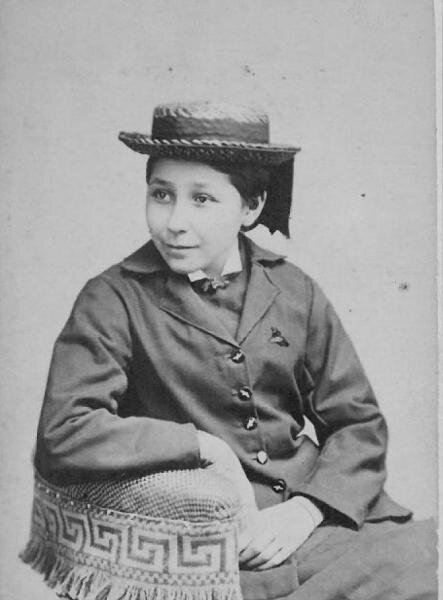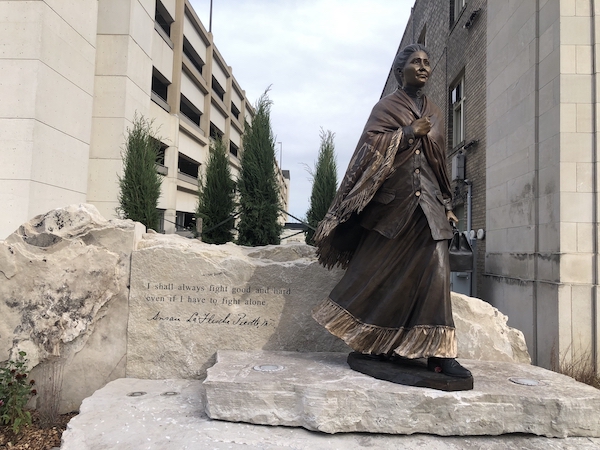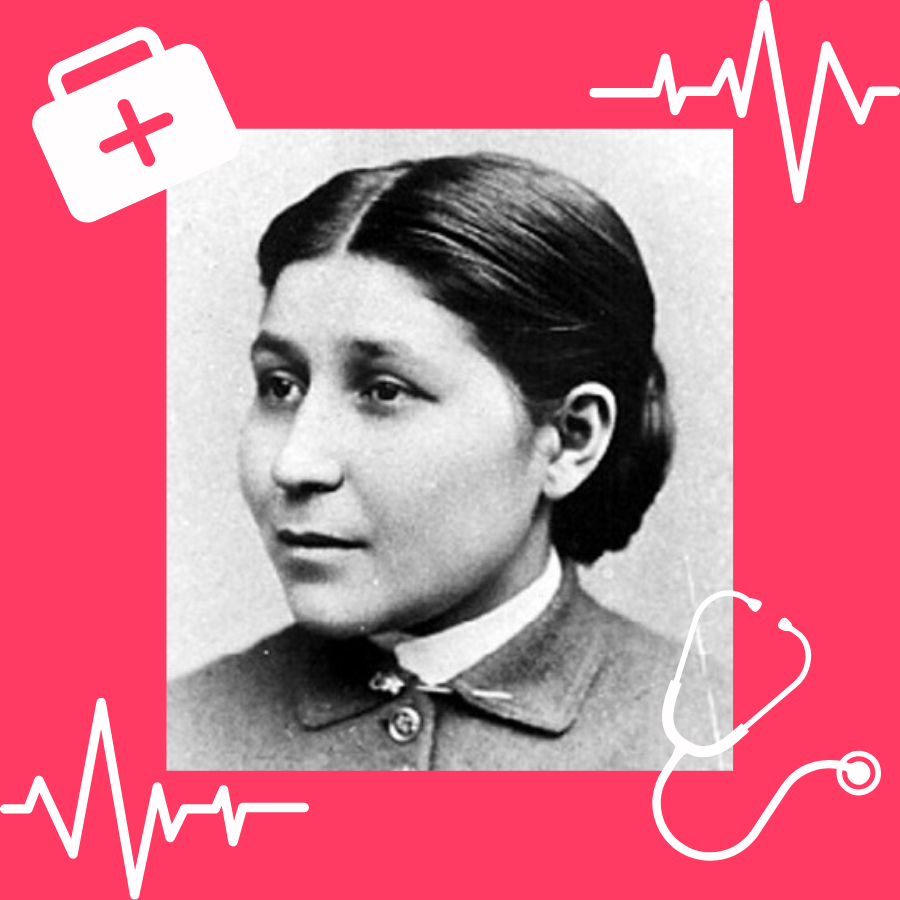This post may include affiliate links, which means we make a small commission on any sales. This commission helps Feminist Book Club pay our contributors, so thanks for supporting small, independent media!
“Reclaiming the Canon” is a series of posts that aims to bring attention to historical women who are often excluded from the narrative of their field — whether in literature, music, science, or other areas. Each post features a woman whose name we feel everyone should know. Readers are strongly encouraged to explore further resources, spend quality time with primary sources when possible, and self-educate — because re-claiming the canon starts with you!
Who Was Susan La Flesche Picotte?
Dr. Susan La Flesche Picotte was an important doctor and social reformer in late-nineteenth-century Nebraska. The first Indigenous woman to receive a medical degree in the United States, Picotte achieved some other “firsts” too: she was the first person on record to receive financial aid for higher education in the United States, and she was responsible for the founding of the first privately funded hospital on a reservation.
As a doctor on the Omaha Reservation, Picotte was solely responsible for more than 1,200 patients. She promoted public health education and sanitation efforts to combat the spread of tuberculosis. She was also an active member of the temperance movement, discouraging drinking in her community and lobbying for prohibition in her county. In addition to her life in public health, Picotte defended Omaha land interests and fought against land fraud happening around the Omaha Reservation.
Her Life
In the mid-nineteenth-century, the Omaha were experiencing a rift: some people were open to incorporating white customs into their culture (with the idea that assimilation was the only way to survive) and others disagreed, considering this a betrayal of native Omaha culture. The former group began to build log cabins instead of teepees and changed their farming practices. This caused the latter group to call them “The Village of the Make-Believe White Men.” In this “Village,” Susan La Flesche was born in 1865 to Iron Eye (leader of the Omaha tribe who also went by Joseph La Flesche) and Mary Gale (daughter of a U.S. Army Surgeon and a woman of Omaha, Otoe and Iowa heritage).
Young Susan grew up straddling the two worlds that surrounded her. She spoke both Omaha and English, and she attended a boarding school on the reservation. (You can learn more about the ugly history of boarding schools in Nebraska – and elsewhere – here.) She moved to Elizabeth, New Jersey where she studied for two more years, then studied at the Hampton Institute in Virginia from 1884-1886. The Hampton Institute was a historically Black college that also admitted Native American students. After this experience (where she mainly studied “housewifery skills”), Susan decided to apply to medical school. In 1886 America, this was an incredibly unusual thing for a young woman to set out to do. But in Omaha society, women were often healers, and Susan wanted to improve life on the reservation.

Susan was accepted to one of only a few medical schools that allowed female students, the Woman’s Medical College of Pennsylvania. However, she could not afford it. She wrote to the Connecticut Indian Association, who agreed to sponsor her medical school expenses. This made Susan the first person in the United States to receive aid for higher education. When she graduated in 1889, she was valedictorian.
The newly minted Dr. Susan La Flesche returned to the Omaha Reservation where she was the physician at the government boarding school. She often had twenty-hour work days and was responsible for over 1,200 people. In the 1890s she married (becoming Dr. Susan La Flesche Picotte) and had two sons. While it was already unusual that Dr. Picotte was a doctor in the first place, it was even more unusual that she continued to practice medicine after the birth of her sons, often bringing her children along with her on house calls. She treated both Omaha and white patients.
Dr. Susan La Flesche Picotte advocated for a variety of public health issues, including hygiene, food sanitation, and other efforts to combat the spread of tuberculosis (which eventually killed her husband, in addition to hundreds of other Omaha people). Temperance was an issue of both personal and cultural importance to her, as her husband was an alcoholic and often white men would use alcohol to take advantage of Omaha men while making land deals.
Her Contribution
Dr. Susan La Flesche Picotte was a founding member of the Thurston County Medical Society and chair of the Nebraska Federation of Women’s Clubs in the beginning of the twentieth century. She educated people about public health issues and campaigned for a new hospital on the Omaha Reservation, which was completed in 1913 and named for her. Unfortunately, after a lifetime of suffering from worsening chronic illness, Dr. Picotte was too ill to practice medicine at the hospital she’d dreamed and worked into existence. She died of bone cancer in 1915.

In Her Words
Young Susan was inspired to one day become a doctor after she witnessed an elderly Omaha woman die because a white doctor – who kept insisting he was on his way – never came. Writing about this experience later in life, she reflected:
“It was only an Indian and it did not matter. The doctor preferred hunting for prairie chickens rather than visiting poor, suffering humanity.”
– Dr. Susan La Flesche Picotte
Further Resources
The hospital founded by Dr. Susan La Flesche Picotte is now a community center called the Dr. Susan La Flesche Picotte Center in Walthill, Nebraska. A National Historic Landmark, in 2018 it was named as one of eleven “most endangered places” by the National Trust. Learn more about the center and support its restoration efforts here.
Learn more about Dr. Susan La Flesche Picotte in PBS’s “The First American Indian Doctor” episode of the American Masters series.
Check out Joe Starita’s biography A Warrior of the People: How Susan La Flesche Overcame Racial and Gender Inequality to Become America’s First Indian Doctor.
Looking for a biography for middle grade readers? Diane Bailey wrote Susan La Flesche Picotte: Pioneering Doctor in Jeter Publishing’s Discovering History’s Heroes series.
The University of Nebraska Medical Center has an informative resource page about Dr. Susan La Flesche Picotte, including an interactive timeline of her life.


